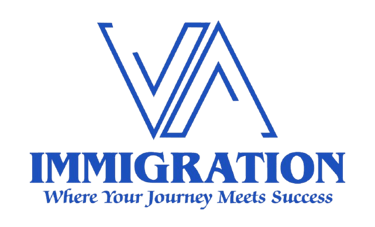Immigration & Naturalization Framework in Russia (Third‑Country Nationals)
1. Legal Foundations
Russia’s immigration regime is governed by the Federal Law on the Legal Status of Foreign Citizens and updated citizenship laws (new law № 138‑ФЗ effective October 26, 2023). These modernize naturalization requirements, relax residency rules, and reform simplified citizenship paths (e.g., for spouses, skilled specialists).
2. Visa Policy & Entry
Visa-free access varies by country; most third-country nationals require a visa to enter Russia.
From June 30, 2025, visa‑free-entry visitors must pre-register through the new mobile Gosuslugi RuID app, submit biometrics, and complete an electronic entry application at least 72 hours before arrival (or 4 hours in urgent cases).
Within visa‑free stay, most foreigners are now allowed only 90 days per calendar year (previously 90 days per 180-day period), including CIS nationals (effective January 1, 2025).
3. Temporary Residence Permit (TRP)
Russia issues a Temporary Residence Permit (TRP) for up to 3 years. Applications are processed in about 20–30 days under general rules.
A special “Shared Values” visa program, launched in August 2024 via presidential decree № 702, allows citizens of 47 “unfriendly” or non-aligned countries to obtain a three-year simplified TRP without language, history, or law testing, and without quotas. After one year, holders are eligible to apply for permanent residence.
4. Permanent Residence Permit (PRP)
After 1 year on TRP, all permit holders may apply for a Permanent Residence Permit with indefinite validity.
PRP holders can live and work in Russia without sponsor support. Processing usually takes 8–12 months under standard procedures.
5. Citizenship / Naturalization
Standard Route
After 1 year with PRP and 5 years total legal residency, applicants may apply for citizenship.
Requirements include: A2-level Russian language skills, proof of stable income, clean criminal background, and renunciation of prior citizenship (exceptions apply).
Simplified Route
Available to:
Spouses of Russian citizens (with a child)
Russian-language speakers
Former USSR nationals
Certain skilled professionals
These applicants can qualify after 1 year of PRP without the full 5-year wait.
Discontinued Routes
Citizenship routes based on Russian language proficiency or investor/specialist status were removed in October 2023.
6. Investor & Special Residency Programs
Investor-Based Residence
Foreigners who invest:
≥ 15 million RUB in regional projects, or
≥ 30 million RUB in a Russian company that pays taxes
May apply for TRP via investment.
After holding TRP for the required period, they may apply for PRP and eventually citizenship after five years of total legal residency.
Note: Investor-based applicants must still meet language, income, and background requirements for citizenship under standard rules.
7. Recent & Upcoming 2025–2026 Changes
Migration registration capped at 1 year
New arrival notification form mandatory from February 5, 2025
Biometric registration required to purchase SIM cards by July 1, 2025; unregistered SIMs face deactivation
Foreign driving licenses issued before April 1, 2024 will be invalid for PRP holders from April 1, 2025; must convert to Russian licenses without exam before deadline
Digital profiles for foreigners using biometric border processing begin rollout December 2024, full implementation by mid‑2025
Deportation law 260‑FZ (from Feb 5, 2025) introduces:
Shorter appeal timelines
Stricter controls on foreign-owned business/property
Halved migrant worker quotas (e.g., Moscow reduced from 1,500 to 1,000 in 2025)
Geofencing starts September 1, 2025, requiring location tracking for foreigners in Moscow and the Moscow region.
⚠️ Insights & Advisory Notes
The “Shared Values Visa” reflects Russia’s ideological stance. Since August 2024, around 700 such visas have been issued, with a few hundred granted permanent residency or citizenship by mid‑2025—though there are reports of bureaucratic hurdles and fraud risks.
Russia has launched a crackdown on migrants, particularly from Central Asian countries (e.g., Tajikistan), resulting in increased deportations and stricter labor rules. This has impacted both remittance flows and domestic labor availability.
Despite digitization of processes, Russia enforces strict language, medical, and residency criteria. Long absences or overstaying may reset eligibility or result in registration violations.
